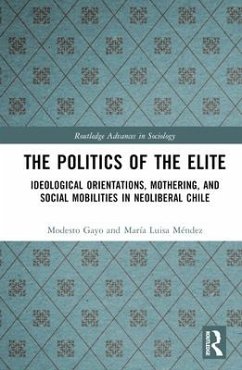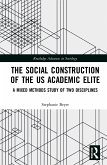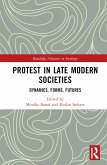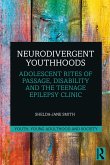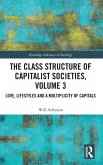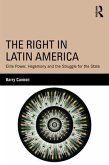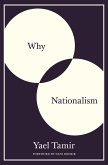This book is a study of class formation at the top of the social hierarchies during the turbulent and changing early twenty-first century. Contrary to perceptions that privileged individuals exist according to little more than market and economic logics, the book provides evidence that they are by no means absent from politics and civic engagement. Adopting a focus on reproduction, distinction, and politics, it delves into the complex relationship between cohesion and fragmentation that exists within the most privileged groups formed over the course of the contemporary neoliberal period.
By knitting a dialogue between spatial analysis, multiple correspondence analysis, and in-depth interviews, the book provides insights into the intricate relations between institutions and political subjectivities, and the role of space and mothering in the political socialisation of Chile's most privileged families. The result is a dense description of a social class fragmented by subtle ideological lines based upon economic inheritance, socialisation within homogeneous family environments, paths into the labour market, and social and political activities.
This book will constitute a much-needed research resource for academics, students, and professionals in areas such as elite studies, social stratification, inequality, social reproduction, accumulation, political socialisation, and contemporary conservative/progressive views.
By knitting a dialogue between spatial analysis, multiple correspondence analysis, and in-depth interviews, the book provides insights into the intricate relations between institutions and political subjectivities, and the role of space and mothering in the political socialisation of Chile's most privileged families. The result is a dense description of a social class fragmented by subtle ideological lines based upon economic inheritance, socialisation within homogeneous family environments, paths into the labour market, and social and political activities.
This book will constitute a much-needed research resource for academics, students, and professionals in areas such as elite studies, social stratification, inequality, social reproduction, accumulation, political socialisation, and contemporary conservative/progressive views.
"This brilliant book provides an utterly persuasive sociological account of the organisation and operation of elite power and privilege in Chile. The depth of analysis exceeds that of any study, from any nation, that I am aware of. It should therefore be of interest to all sociologists of power and inequality across the globe."
Prof. Mike Savage, London School of Economics and Political Science
"The politics of the elites is crucial for inequalities. In this indepth multi method research, renowned sociologists Maria Luisa Mendez and Modesto Gayo produce a rigourous analysis of elites education, socialisation, segregation, reproduction and class making in Chile. But what bears emphasizing is the political dimension of this class constellation, tensions and differences in order to show political orientations and agencies in relation to trajectories of social mobility and reproduction."
Prof. Patrick Le Gales, Science Po
"The Politics of the Elite is a major addition to the international literature, contributing to our understanding of contemporary Latin-American elites. Extending the Bourdieusian approach, the book zooms in on political socialization and fragmentation, exploring the role of mothers in defining an ideal moral world that is structured around diversity or homogeneity, different types of individualism (more cosmopolitan or localistic), and more or less openness to change or conservatism. This book should be widely read and discussed."
Prof. Michèle Lamont, Harvard University
Prof. Mike Savage, London School of Economics and Political Science
"The politics of the elites is crucial for inequalities. In this indepth multi method research, renowned sociologists Maria Luisa Mendez and Modesto Gayo produce a rigourous analysis of elites education, socialisation, segregation, reproduction and class making in Chile. But what bears emphasizing is the political dimension of this class constellation, tensions and differences in order to show political orientations and agencies in relation to trajectories of social mobility and reproduction."
Prof. Patrick Le Gales, Science Po
"The Politics of the Elite is a major addition to the international literature, contributing to our understanding of contemporary Latin-American elites. Extending the Bourdieusian approach, the book zooms in on political socialization and fragmentation, exploring the role of mothers in defining an ideal moral world that is structured around diversity or homogeneity, different types of individualism (more cosmopolitan or localistic), and more or less openness to change or conservatism. This book should be widely read and discussed."
Prof. Michèle Lamont, Harvard University

